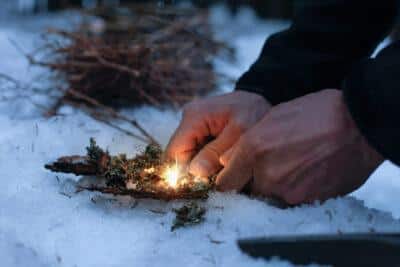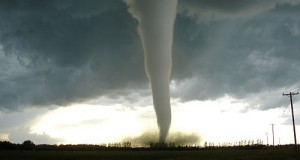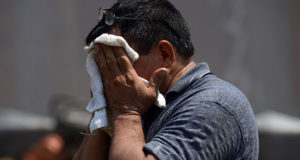I’ve been a survivalist for a long time. Things were different when I started, back in the 1970s. More than anything, there wasn’t the survival industry that we have today. Those of us who thought in those terms had to figure out how to do things ourselves or how to adapt existing tools and equipment (mostly camping equipment) for survival.
There have been many changes since then. Much of that has been due to people coming up with new equipment and new ideas. It is much easier to find the gear to build a survival kit or bug out bag today than it was 40 years ago. There’s also a much more comprehensive range of equipment to choose from, much of it excellent and some of it noticeably superficial.
But one thing has happened in all this which works against our survival. In the desire to keep coming up with new gear and techniques, not everyone has thought through the practicality of their ideas in an actual survival setting. More than anything, this has been manifested in the complexity of some of these survival gadgets. While I have nothing against a sophisticated piece of equipment, I have a lot against it being complicated to use.
As a former engineer, I am fully aware that the more complex a piece of equipment is, the more chance there is of something going wrong with it, especially when you really need it.. Take a look at cars for example.. There are thousands of parts that have to work correctly for a vehicle to run. Then there are several hundred more that have to run for all the accessories and conveniences to run as well.This fact makes the chances of that car running flawlessly for 100 miles considerably slim.
Keeping Fire Starting Simple
For that matter, I have some major issues in using techniques that are difficult to employ. These concerns are especially valid when there are easier things that will do the job. Take fire starting as a case in point. Survival instructors seem to collect fire starting techniques, each trying to outdo the next in the variety and complexity of the methods they know. I suppose that some of the more esoteric and difficult practices of fire starting might be useful in a real emergency where one doesn’t have a survival kit. Nevertheless, I think it makes much more sense to ensure that you have a survival kit with a simple, reliable fire starter in it.
Today, the fire starter that seems to be the most widely promoted is the Ferro Rod. You can find many giveaways where someone is trying to send you one of these. You’ll also see them included as an “extra” with survival knives, survival shovels and just about any other piece of survival gear you can think of.
As far as I’m concerned,the only thing worse than a Ferro Rod for starting a fire is using friction (bow drills, fire plow, pump fire drill, etc.). The Ferro Rod is nothing more than a commercialized version of a flint and steel. While you can start a fire with it, you’d better have some extremely dry, really flammable tinder and you’d better not be suffering from hypothermia, or in a real crisis you could lose your life.
If you need a fire in a survival situation, you usually need one instantly and not in half an hour. That’s why I believe in fire starters that are fast, easy and reliable. Forget about “secondary fire starters” unless they truly fit that description. Make sure you have enough adequate primary fire starters to take care of your needs.
What do I mean by that? I mean fire starters that will work no matter what. Storm proof matches are one of the best fire starters on the market, for that very reason. It doesn’t matter if you’re in the midst of a hurricane and the storm has soaked the matches in water. They work.
Another fire starter as good as Storm proof matches is a Storm proof lighter. This product combines a butane lighter with a piezoelectric igniter. As long as the gas valve is depressed, the piezoelectric igniter is operating. So, even if the wind blows it out, it will reignite immediately. If you’ve ever tried starting a fire in the wind with a disposable butane lighter, you’ll quickly see the value of this lighter.
Keeping Emergency Shelter Simple
Setting up camp consists typically of building a shelter and starting a fire. However, I hear more people talking about building a debris shelter than I hear talking about how to make sure you have a shelter that you can set up in ten minutes or less. The last time I built a debris shelter, it took me a whole lot longer than 10 minutes.
On the other hand, if you have alight weight tarp and some paracord, you can set up roughly the same size and shape shelter in less than 10 minutes, especially if you have some tent stakes to use with it. But even if you don’t, cutting tent stakes from sticks is easy. If you need insulation, you can still pile leaves on the sides of the tarp, just like you would on the framework you make for the debris hut.
If you want to go even more accessible than this, then make a backpacking tent part of your bug out bag. Good backpacking tents weigh less than a lot of other things that we include in our kits, but for some reason,we don’t carry them along. If we want to keep things simple, this only makes sense.
Bottom Line:
Keeping your emergency plans simple could very well be the single most important thing you do.
I could keep going on with example after example. The point is that we should take a look at everything we’re doing for survival with the idea of ensuring that it is the most effortless possible way of doing things. When an actual survival situation presents itself, you’re going to have enough to do without making things harder. The time you save on these routine tasks could be the time you need to accomplish some other critical survival task.
Even more important than the time you save is the ease of accomplishing the task. I wasn’t being facetious before when I was talking about someone with hypothermia dying while trying to start a fire. If you ever get to that point, you won’t be able to accomplish complex tasks; you’ll have to keep things as simple as you possibly can. Your mind won’t be clear, and your agility could very well be out the window.
That’s why I believe in making the “KISS” principle a central part of my own survival strategy. If you’ve never heard that acronym before, it stands for “Keep It Simple Stupid.” No, I’m not insulting you. When you’re cold, and you need to survive, I can guarantee that you’ll feel stupid. So, you’ll need to keep things as simple as possible.
 Off The Grid News Better Ideas For Off The Grid Living
Off The Grid News Better Ideas For Off The Grid Living




